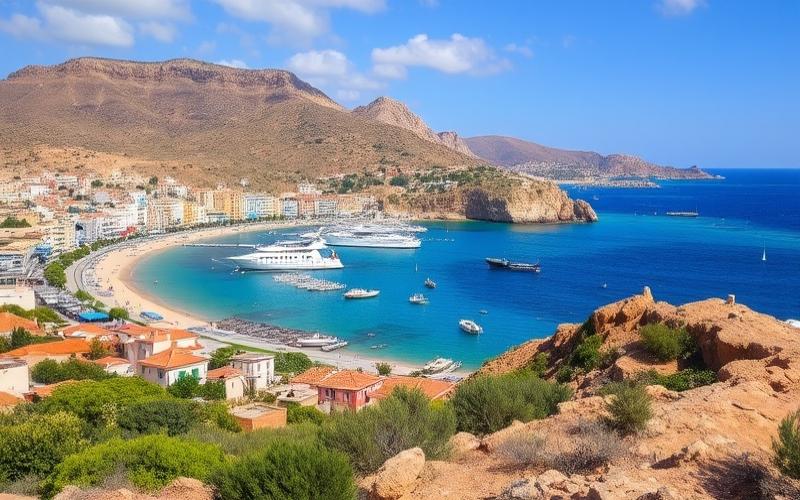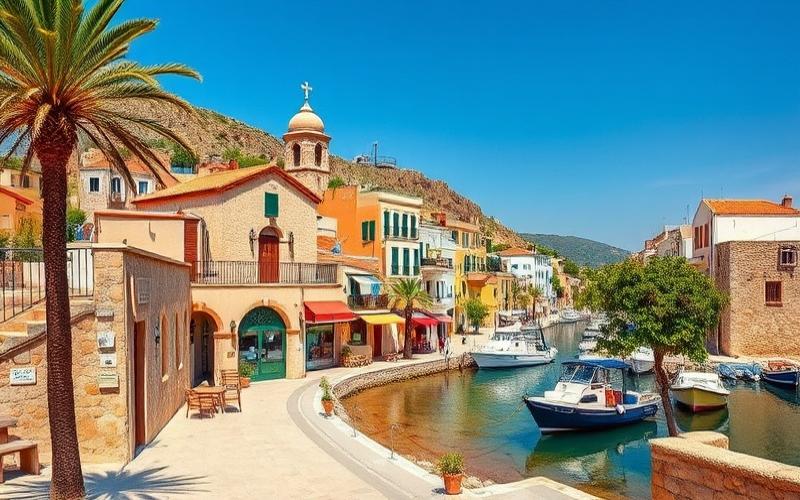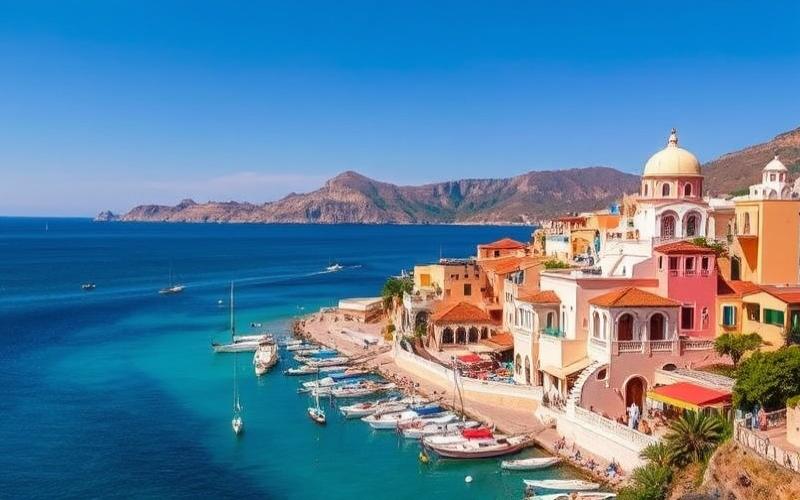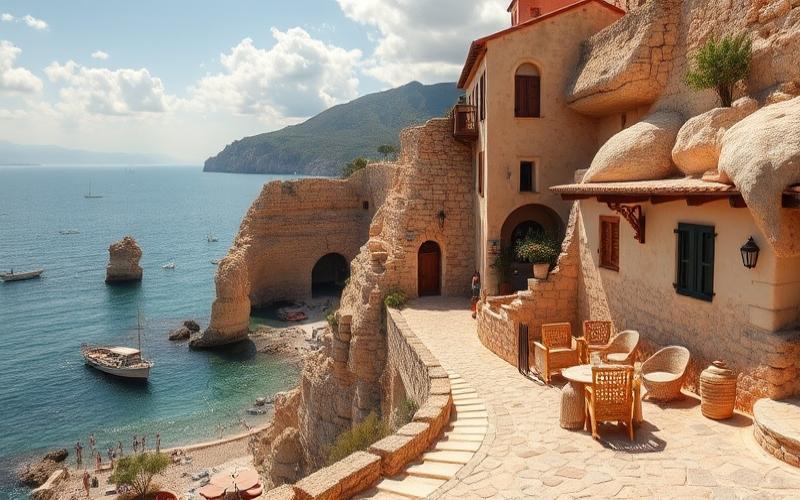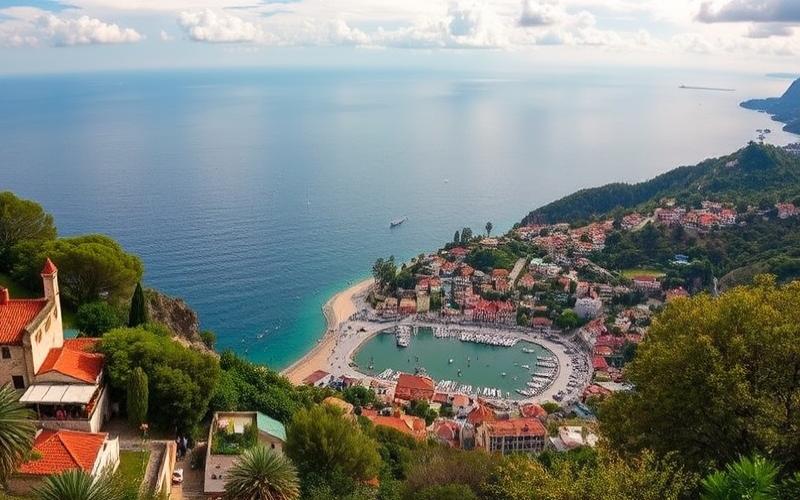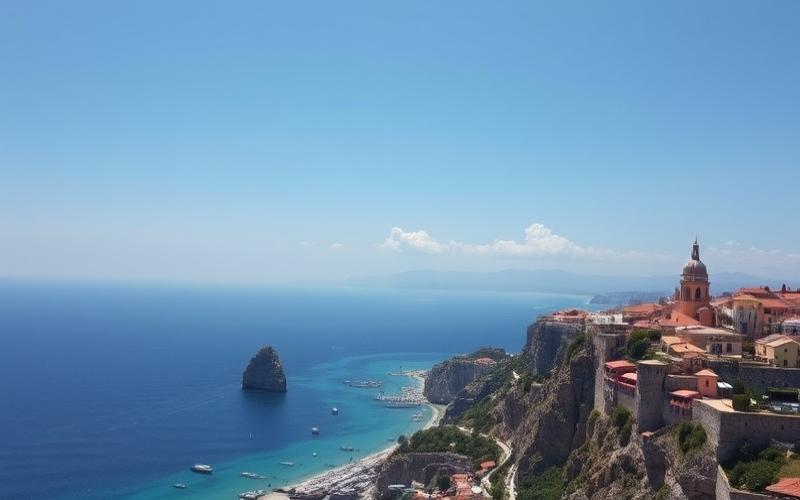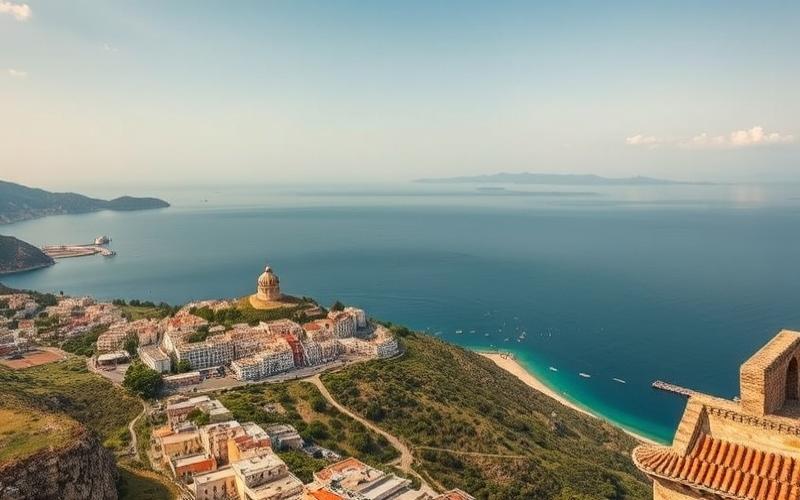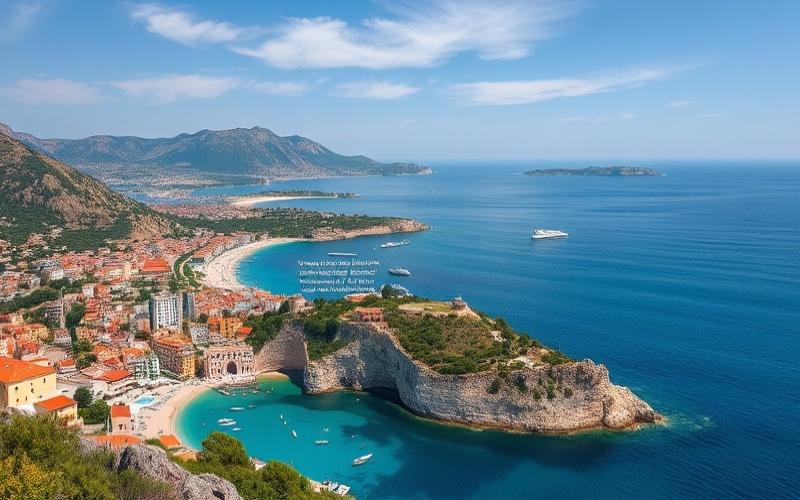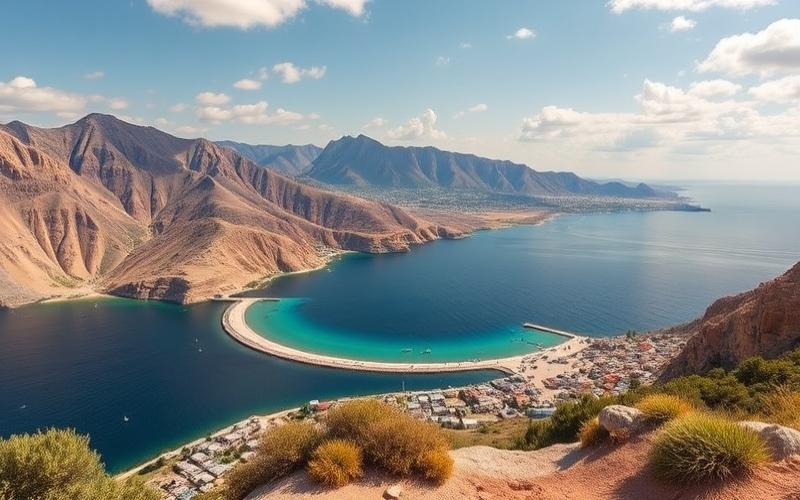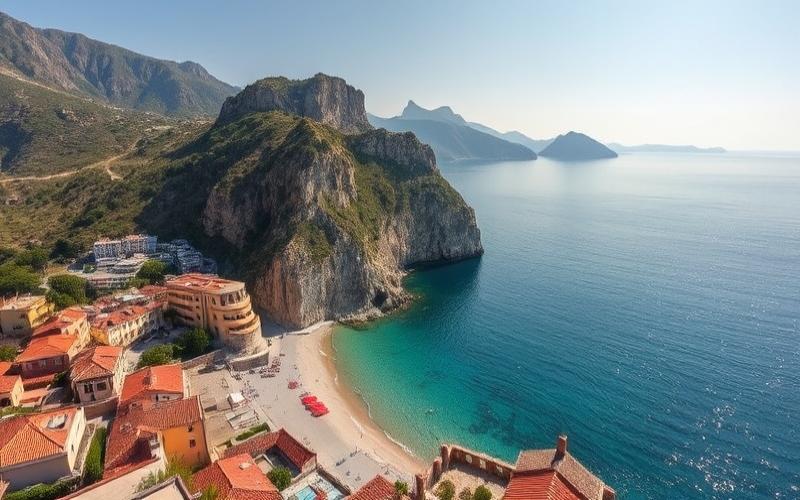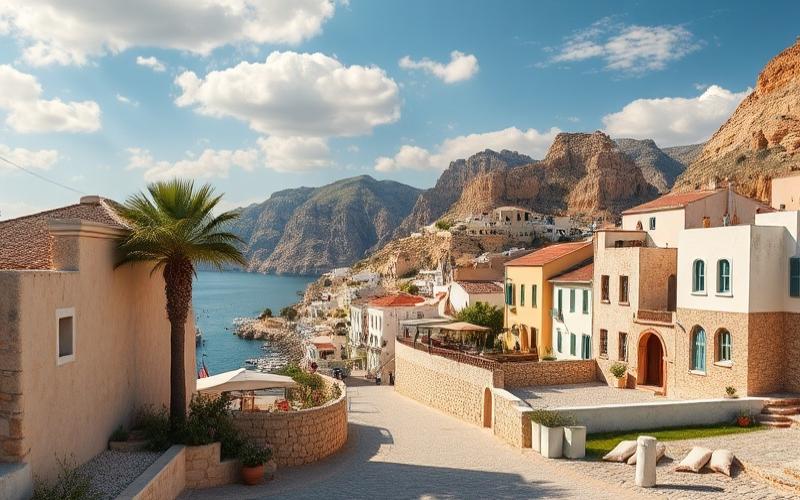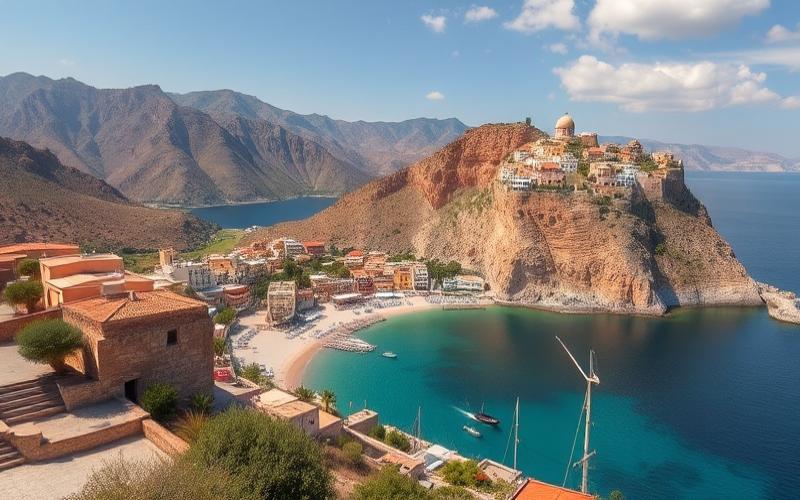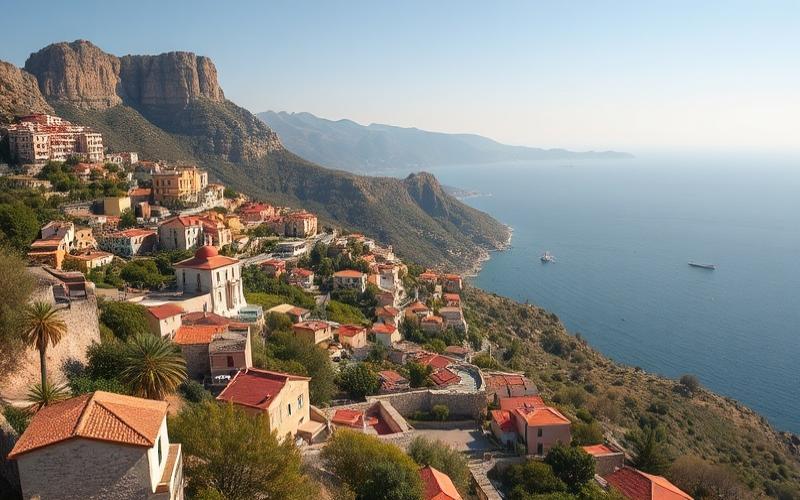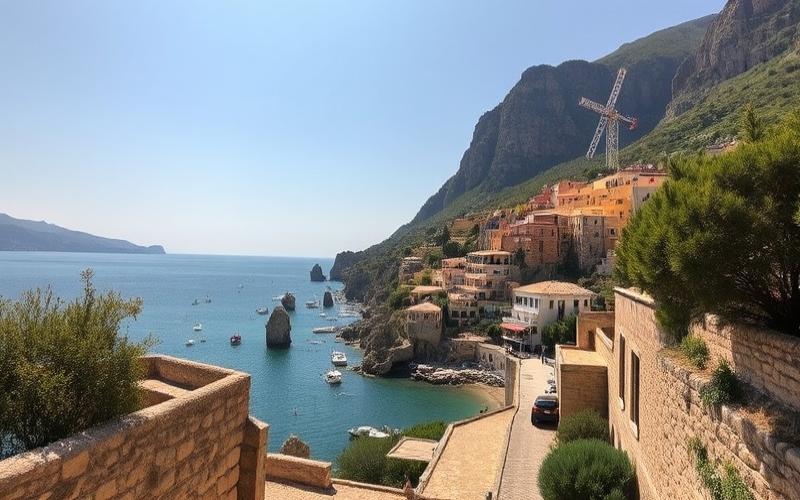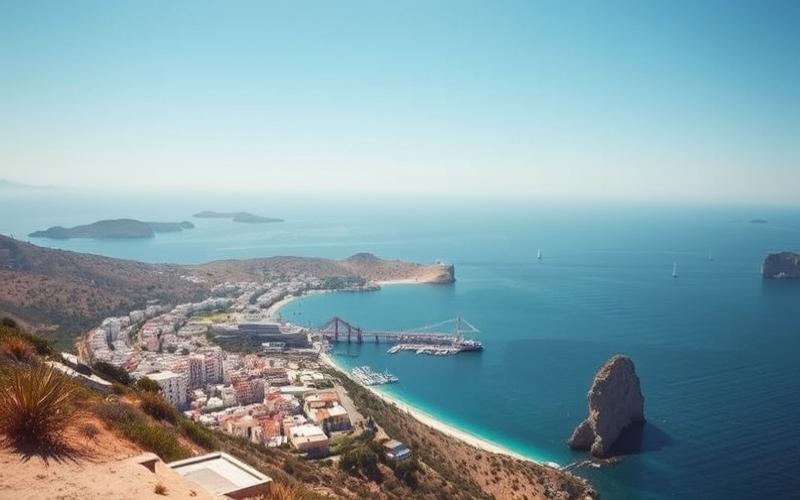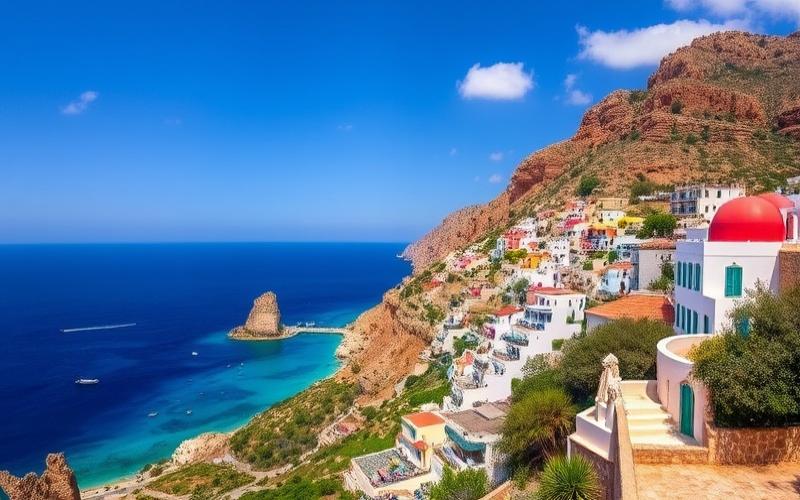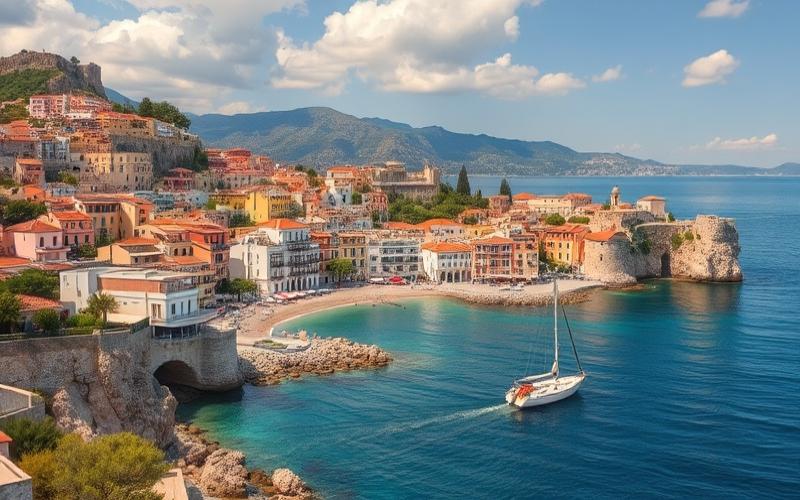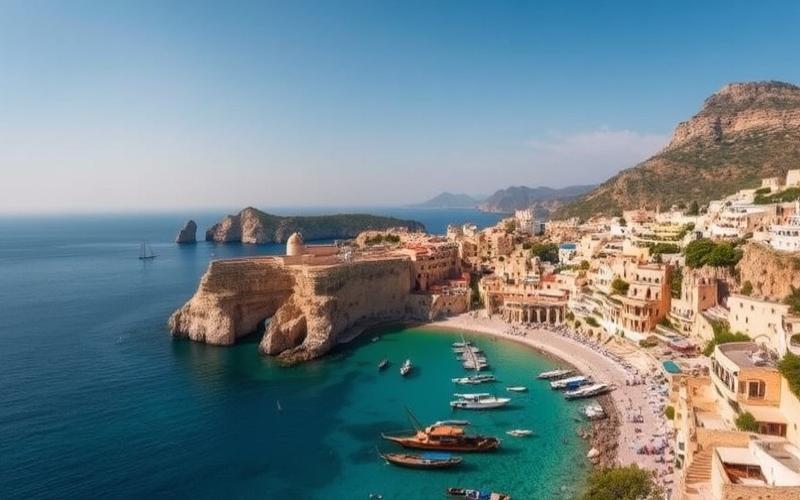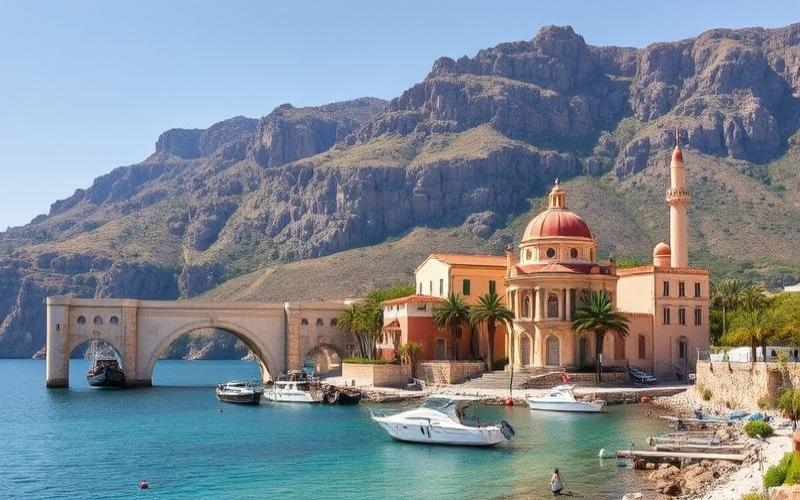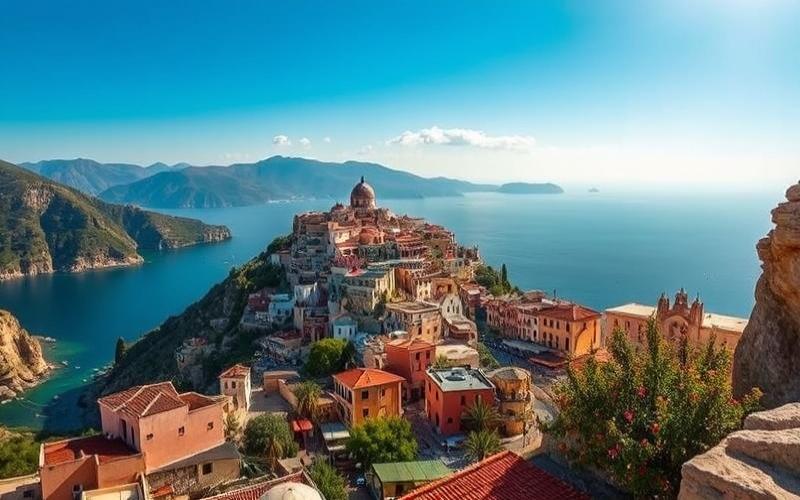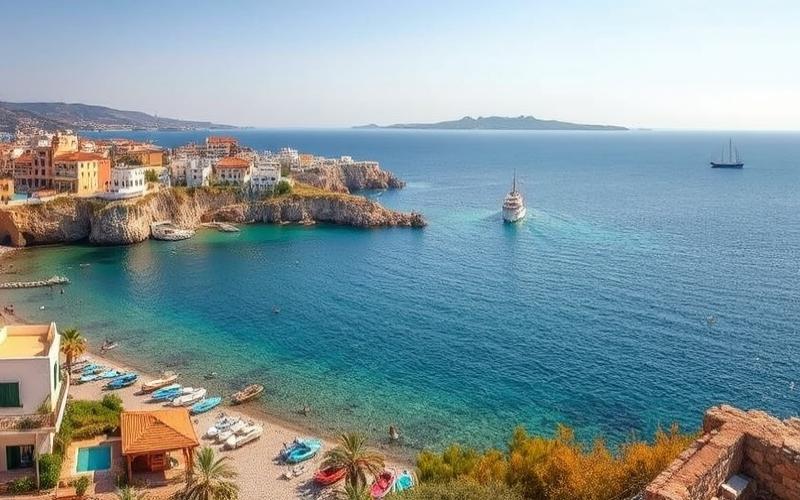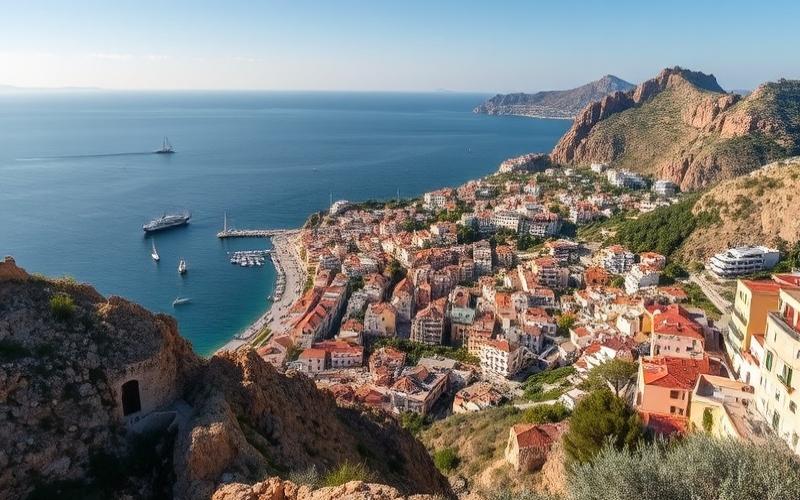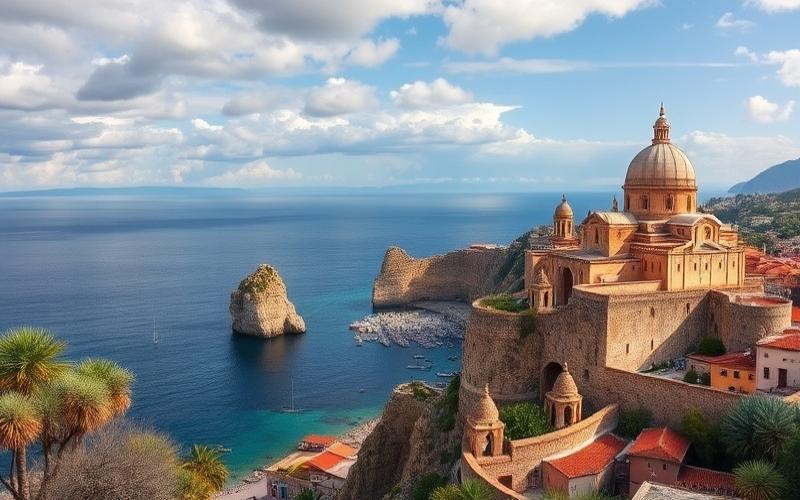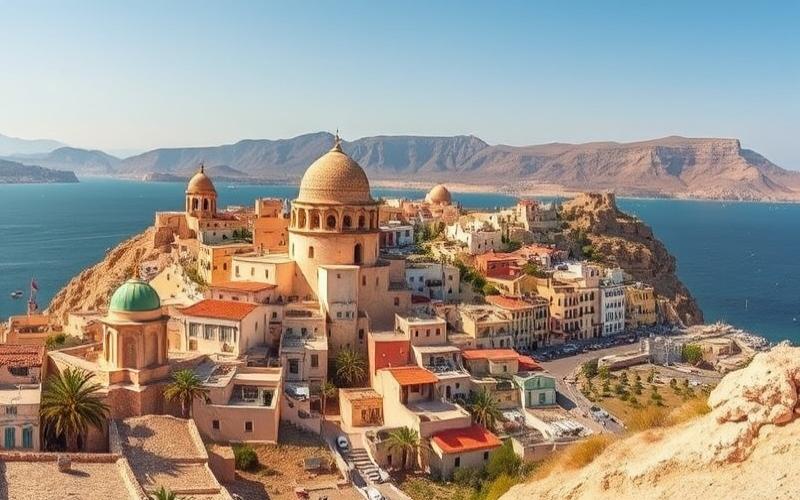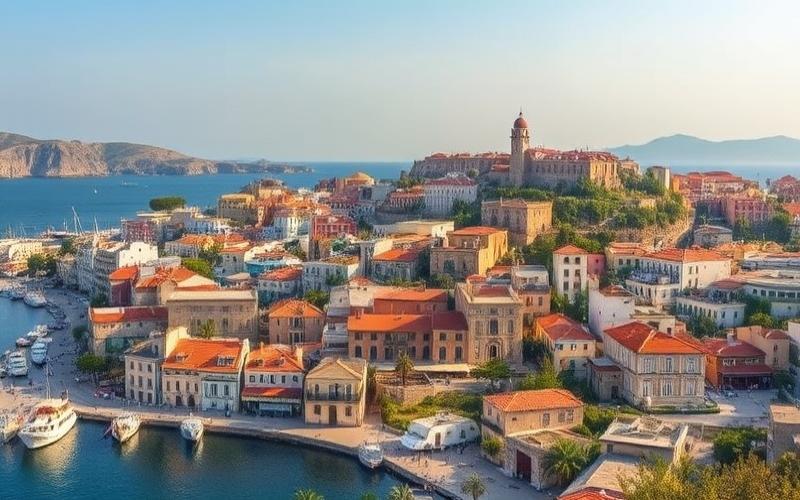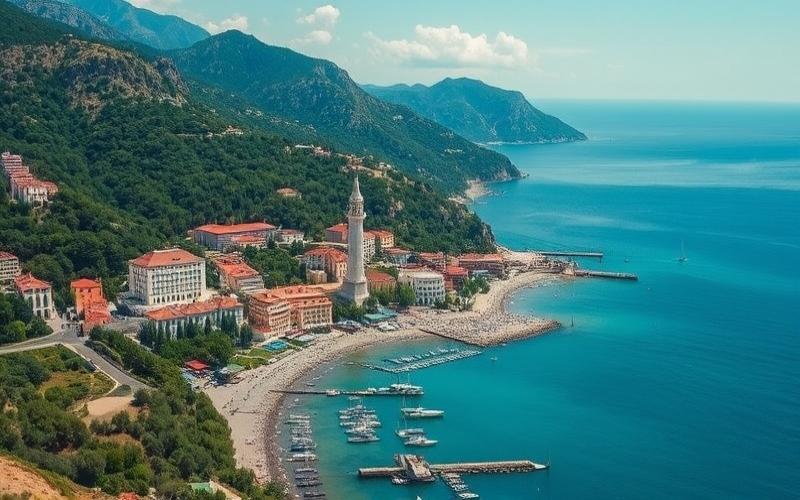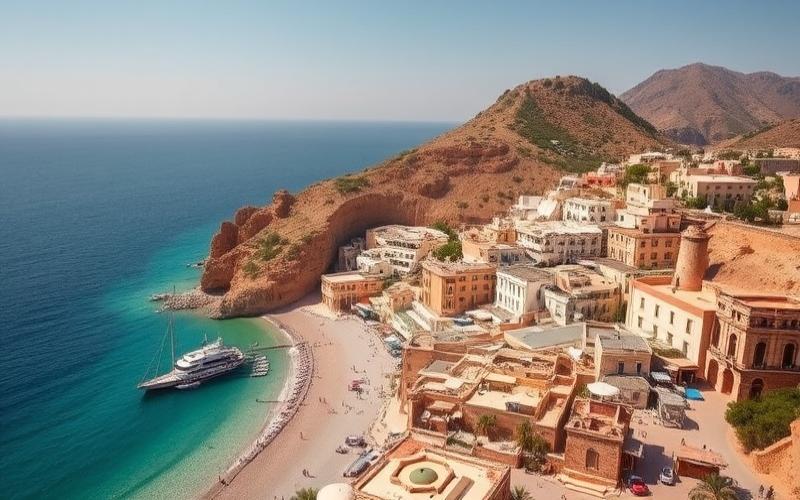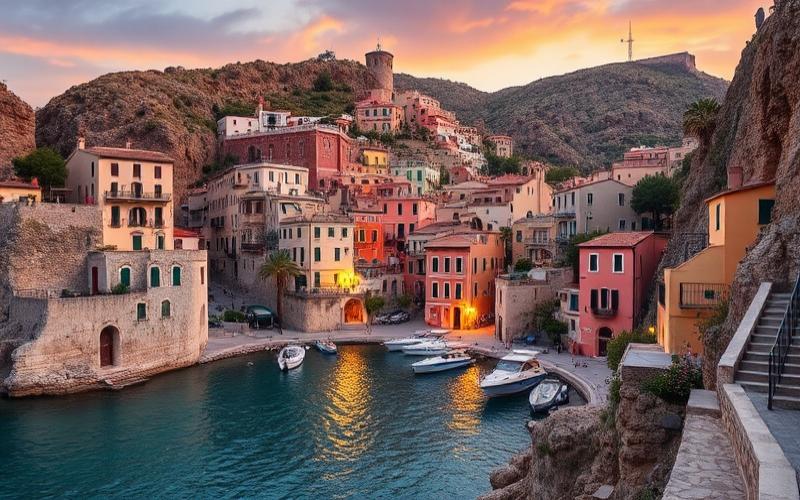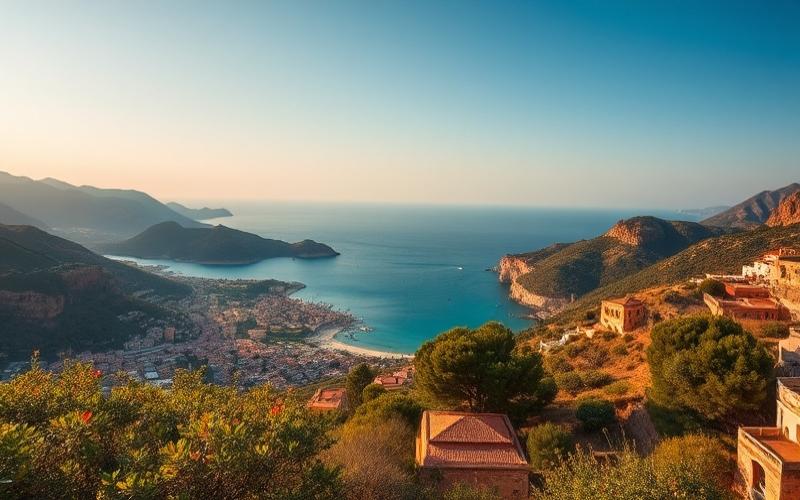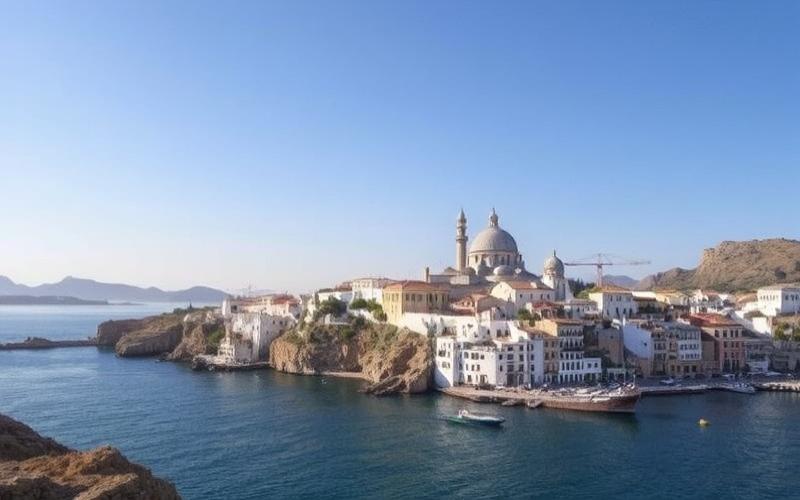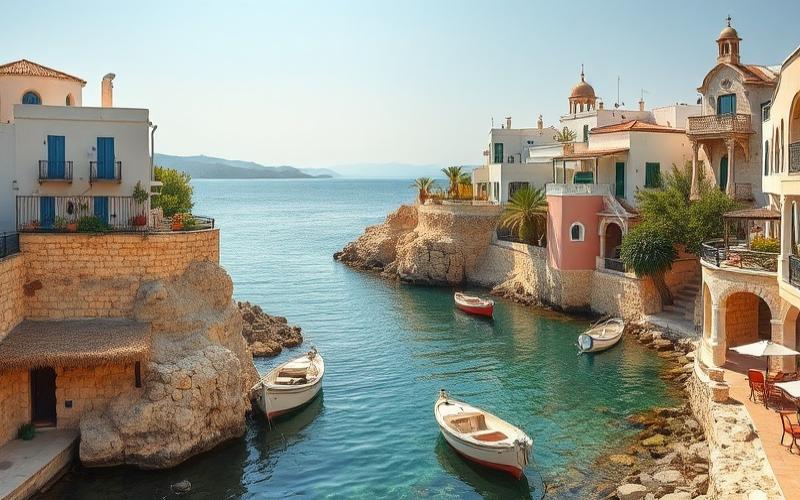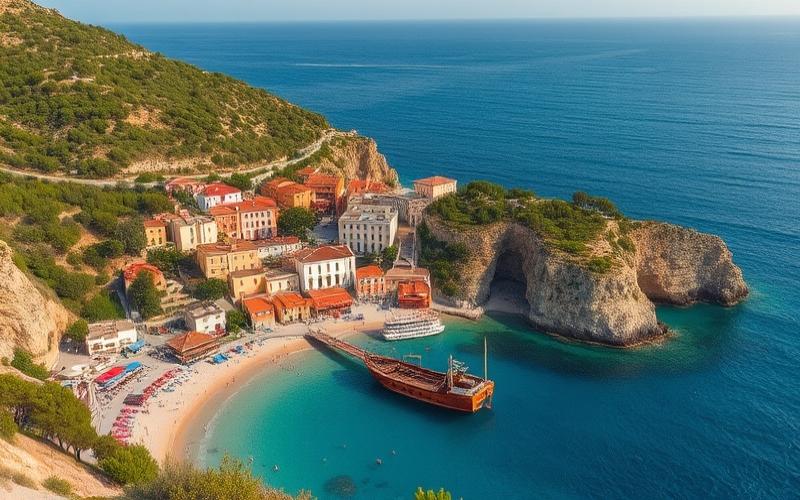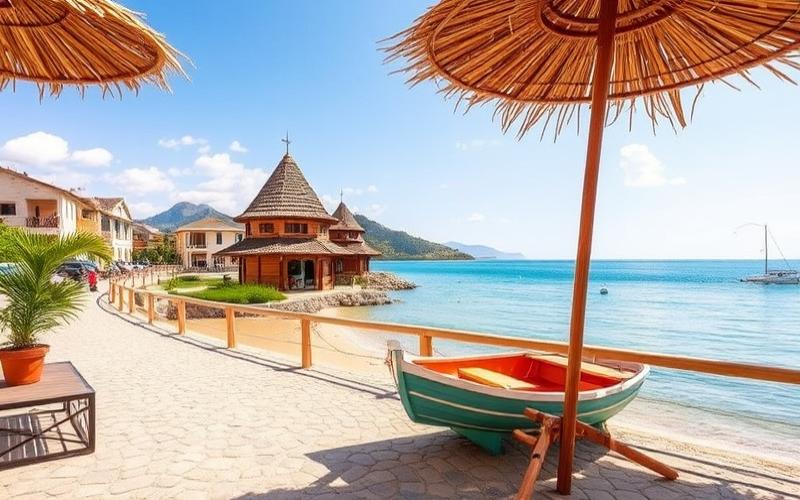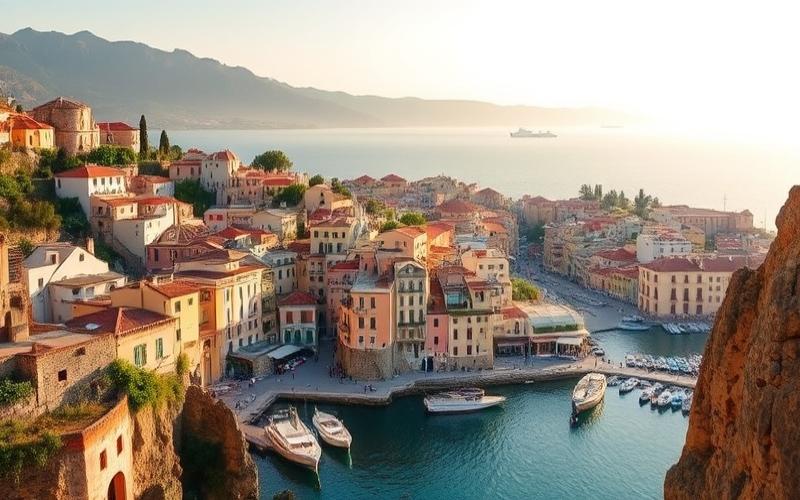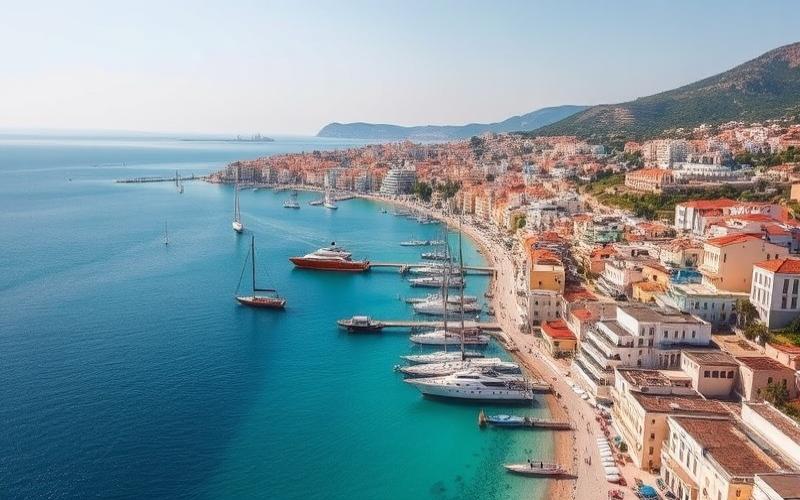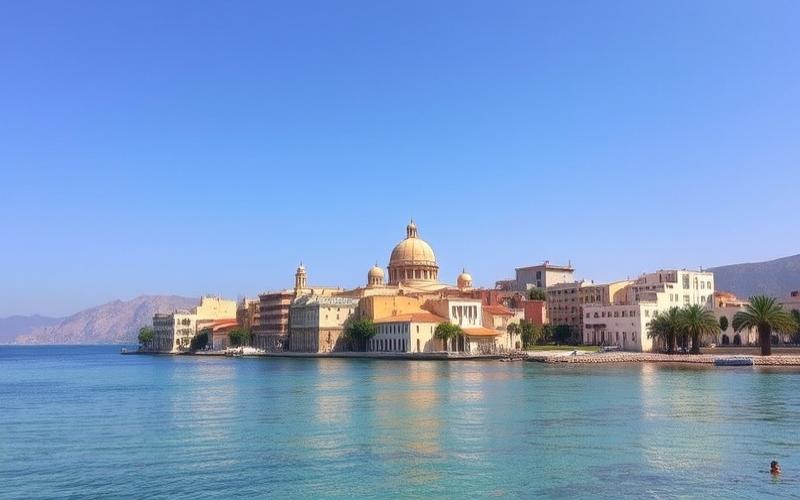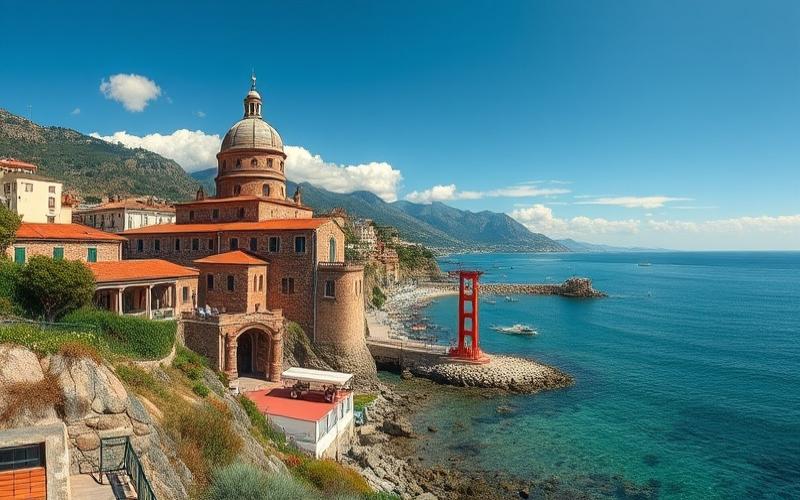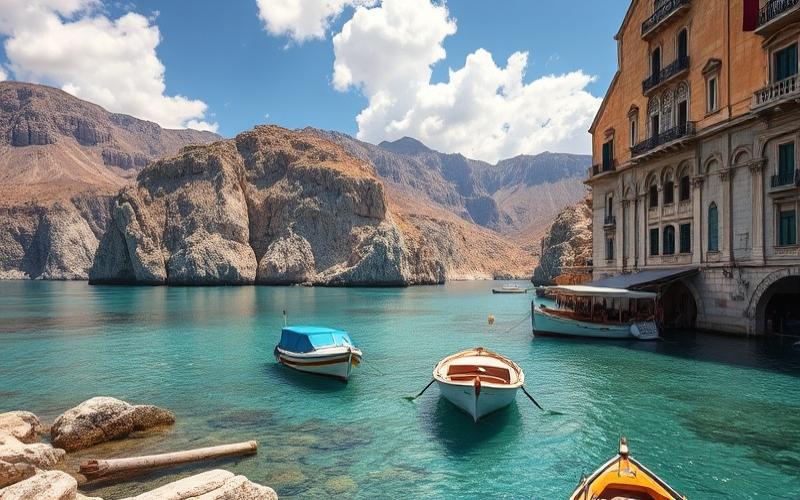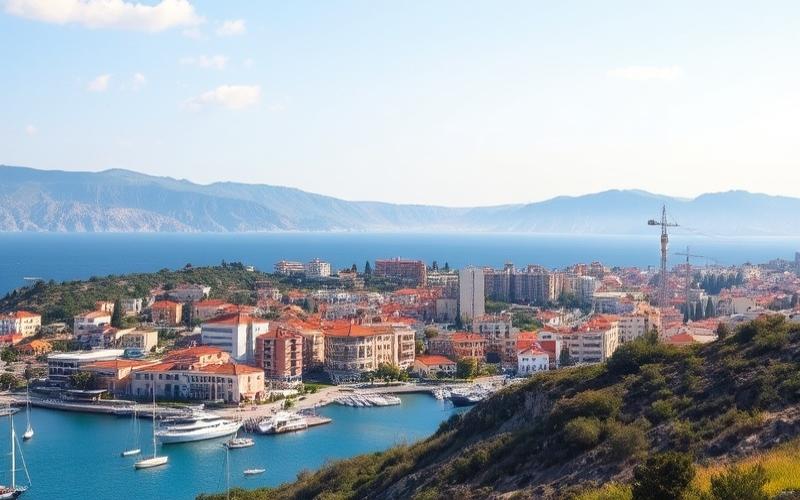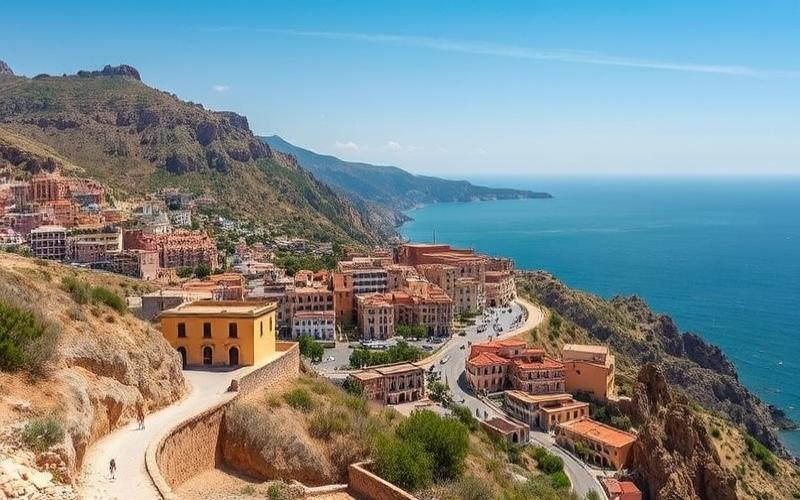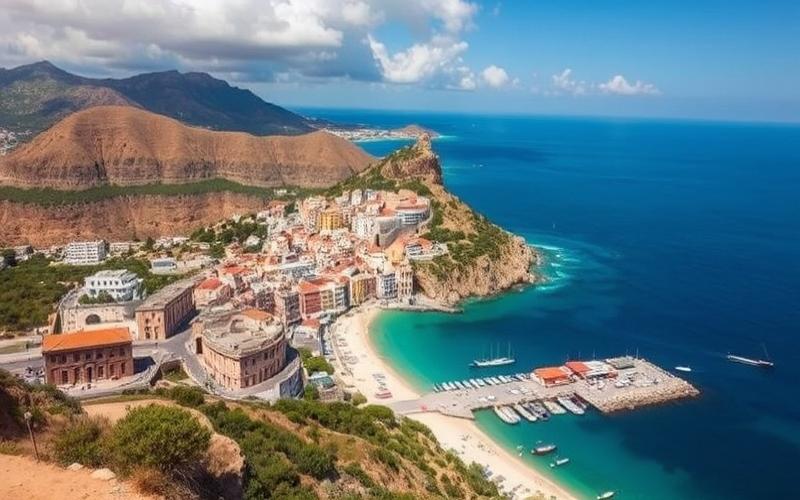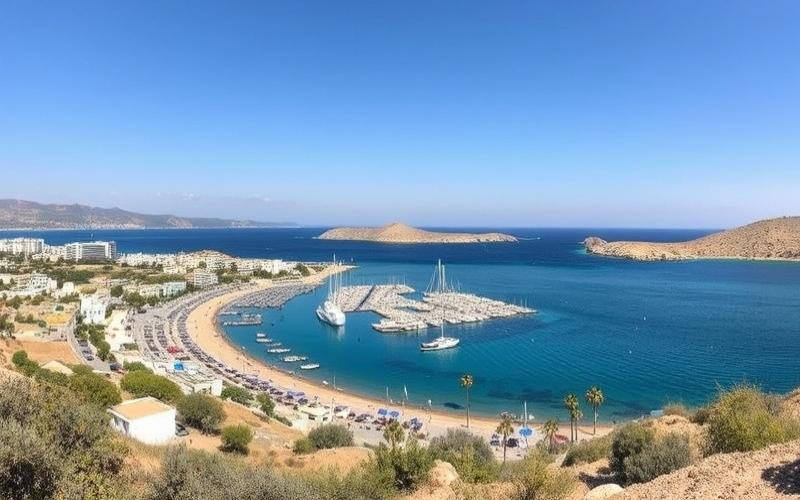
 Published on and written by Cyril Jarnias
Published on and written by Cyril Jarnias
In a world seeking back-to-basics and authenticity, Cyprus positions itself as a leading destination for those looking to invest in villages with timeless charm. In 2025, this Mediterranean island offers exceptional opportunities to transform these picturesque locations into innovative projects, blending respect for traditions with tomorrow’s technologies.
Whether you’re drawn to the dynamism of real estate or the potential of sustainable tourism, exploring this country with its rich heritage promises attractive returns while actively participating in preserving its unique culture.
Investing in Cyprus’ Authentic Villages: Untapped Potential
Cyprus’ authentic villages captivate with their exceptional cultural heritage, traditional architecture, and remarkably preserved natural environment. Among the most iconic, Kalopanagiotis, Lefkara, and Fikardou exemplify this unique marriage between history and nature.
| Village | Cultural Attractions | Architecture | Natural Environment |
| Kalopanagiotis | Byzantine monasteries, thermal springs, UNESCO heritage | Cobblestone streets, restored stone houses | Troodos Mountains, ancient bridges |
| Lefkara | Crafts (lacework), local traditions | Traditional houses | Rolling hills |
| Fikardou | Preserved Cypriot authenticity | Historic buildings listed as World Heritage | Forests and mountains |
Cultural and Architectural Heritage
- The stone houses with weathered facades showcase ancestral craftsmanship.
- UNESCO-listed Byzantine monasteries coexist with cobblestone alleys lined with family-run taverns serving authentic Cypriot cuisine.
- The atmosphere is marked by local hospitality and the richness of living traditions.
Preserved Natural Environment
- These villages are often nestled in the Troodos Mountains or between sea and mountains.
- The surrounding natural beauty promotes relaxation and environmentally friendly outdoor activities.
Potential Economic Benefits of Investment
- Sustainable tourism development: these destinations attract clients seeking authenticity and disconnection who favor slow tourism.
- Support for local small business creation: rural lodgings, family restaurants highlighting local products, or craft workshops help revitalize the village economy.
- Economic revitalization: restoring traditional buildings generates local specialized jobs (masons, artisans) while enhancing the heritage setting for quality tourism.
Investment Challenges
List of main challenges:
- Limited infrastructure: sometimes difficult road access; Internet network or public services need strengthening to accommodate more visitors without compromising the location’s character.
- Preserving authenticity: risk of overtourism potentially leading to cultural homogenization or real estate pressure on traditional homes.
Examples of Successful Initiatives
Kalopanagiotis was voted “best tourist spot” by the UN for 2024 thanks to its ability to combine high-end tourist hospitality (tastefully restored accommodations) with sustainable enhancement of local heritage. The village successfully attracted investors betting on its authenticity while actively involving the local community.
Incentive programs also encourage ecological restoration of historic buildings in several certified villages like Arsos or Lania.
2025 Outlook
For this pivotal year:
List of major expectations:
- Expected increase in ethical investments targeting quality rural accommodations.
- Continued growth of green tourism with possible expansion toward more immersive cultural activities (craft workshops, food festivals).
- Anticipated increased profitability through premium positioning in the “authentic experience” segment, with strict maintenance of heritage requirements so each project genuinely contributes to local economic development without compromising landscapes or traditions.
Good to Know:
Investing in Cyprus’ authentic villages offers considerable potential thanks to their rich cultural heritage, traditional architecture, and intact natural environment. Developing sustainable tourism in these villages can stimulate the local economy by attracting visitors interested in Cypriot history and landscapes while enabling the emergence of small businesses, from hospitality to local crafts. However, investors must navigate challenges of limited infrastructure and ensure maintaining the location’s authenticity, crucial points for successful long-term projects. Initiatives like restoring houses into charming hotels in Lefkara show that such projects can be profitable and significantly strengthen the local economy. By 2025, these villages are expected to become models of balanced development, combining profitability, conservation, and improved quality of life, with positive regional impact while meeting growing demand for authentic cultural experiences.
Cyprus’ Rural Regions: Hidden Treasures for Investors
Cyprus’ rural regions stand out through a rare combination of living cultural heritage, preserved natural landscapes, and authentic local hospitality. The villages, nestled among mountains, vineyards, and pine forests, embody Cypriot tradition and authenticity.
Unique Characteristics of Rural Areas
- Traditional architecture: stone houses with red tile roofs, cobblestone alleys preserving old-world charm.
- Ancestral farming practices: techniques passed down through generations (plowing with oxen, manual harvesting).
- Local crafts: pottery, lace, weaving, wood carving, and basketry demonstrate recognized artisanal expertise.
- Natural beauty: varied landscapes blending wild coasts, citrus orchards, and golden fields.
- Cypriot hospitality: warm welcome from villagers offering immersion into local life.
Specific Investment Opportunities
| Sector | Concrete Opportunities |
|---|---|
| Sustainable Tourism | Developing eco-lodges or rural accommodations enhancing the natural environment |
| Agro-tourism | Creating circuits focused on agricultural discovery (wine or olive oil tastings) |
| Rural Real Estate | Renovating or acquiring traditional buildings for secondary residences or seasonal rentals |
Exemplary Villages with Success Stories
- Omodos (Troodos): famous for its wine estates transformed into high-end tourist accommodations
- Lefkara: renowned for its lace inscribed as intangible cultural heritage; numerous rehabilitated workshops
- Kakopetria: strong tourist appeal thanks to its restored historic center and nature trails
- Kalopanayiotis: successful development around traditional thermal spas
Local Initiatives Supporting Rural Economy
Non-exhaustive list:
- Subsidized programs for renovating traditional buildings
- Festivals celebrating local products and craft traditions
- Modernized agricultural cooperatives promoting short supply chains
Tax Incentives & Advantageous Government Measures
The Cypriot government offers partial exemptions on real estate capital gains in rural areas along with significant tax reductions for investments related to sustainable tourism. Some simplified regulations also facilitate transforming historic buildings into tourist accommodations while preserving their traditional character.
In summary:
The hidden treasures of Cypriot countryside offer fertile ground for both responsible economic development and authentic human experience. Between attractive public incentives and growing local dynamism around green and heritage tourism, these villages are now at the heart of new investment strategies with high added value.
Good to Know:
Cyprus’ rural regions offer investors hidden treasures thanks to their rich cultural heritage, stunning natural landscapes, and warm local hospitality. The sustainable tourism and agro-tourism sectors particularly reveal strong potential, with villages like Lefkara and Omodos already established as success stories. Here, local development initiatives actively support the rural economy, and encouraging tax incentives are in place to stimulate investment, such as tax reductions for sustainable development. These opportunities also extend to the real estate market where properties benefit from authentic charm and idyllic settings, making these villages prime targets for entrepreneurs seeking new opportunities.
Cypriot Authenticity: An Asset for Profitable Real Estate
The cultural and architectural authenticity of Cypriot villages constitutes a major asset for the island’s real estate. This heritage wealth naturally attracts investors and tourists seeking authentic experiences, creating a virtuous circle between preservation and economic enhancement.
Conserving architectural heritage represents a government priority in Cyprus, although most of this heritage belongs to private owners. This situation requires close cooperation between public and private sectors to ensure protection, conservation, and enhancement of these properties. The Cypriot government demonstrates its commitment through adapted legislation and various incentive measures.
The government program “Diatiriteo” specifically encourages respect and protection of vernacular architecture by incentivizing owners to preserve their properties’ authenticity. This program is part of a broader strategy offering grants, tax deductions, and other benefits like transfer of development rights for listed buildings.
| Incentive Measures | Beneficiaries | Benefits |
| Direct Grants | Private Owners | Financial assistance for restoration |
| Tax Deductions | Investors | Reduced tax burden |
| Transfer of Development Rights | Owners of Listed Buildings | Compensation for usage restrictions |
The fortified city of Nicosia perfectly illustrates this preservation policy. Divided for nearly 40 years by the “green line,” a demilitarized zone controlled by the UN, the city nevertheless benefited from conservation efforts that preserved its unique character despite geopolitical challenges.
In Paphos, a UNESCO World Heritage site, authorities demonstrated their commitment to preservation by rejecting a tourism development project that would have compromised the site’s archaeological integrity. This decision, made despite municipal pressure, testifies to the priority given to heritage conservation over immediate economic interests.
Villages that have invested in preserving their architectural heritage generally experience significant real estate appreciation. Properties restored in accordance with local architectural traditions command higher prices and attract international clients sensitive to cultural authenticity.
- Average 15% increase in value for properties restored according to traditional standards
- 22% higher occupancy rates for authentic tourist accommodations
- Extended stay duration averaging 3.5 days in preserved villages
2025 forecasts indicate continued growth in this real estate market segment, with an expected 18% increase in investments restoring Cypriot architectural heritage. This trend is explained by growing demand for authentic tourist experiences and real estate investments with high cultural added value.
Preserving Cyprus’ architectural heritage isn’t just a cultural matter, but also a sustainable economic driver generating positive spillover effects for the entire local economy.
Good to Know:
Preserving the cultural and architectural authenticity of Cypriot villages represents a major asset for profitable real estate, attracting both investors and tourists seeking new experiences. Local policies favor heritage restoration, with projects like in Lefkara village where rehabilitating traditional houses significantly increased rental yields. These conservation efforts attract sustainable tourism, contributing to rising demand for local accommodations, translating to an anticipated 15% increase in real estate values by 2025. These villages constitute genuine investment opportunities thanks to tax incentives offered to encourage renovations respectful of traditional buildings.
Heritage and Profit: Capitalizing on Cypriot Opportunities
Unique Characteristics of Cypriot Cultural Heritage Attracting Investors
- Exceptional architectural diversity: the island offers a unique combination of Byzantine (churches and monasteries with refined frescoes and mosaics), Venetian, Ottoman (mosques, caravanserais like Büyük Han), and Gothic architecture. Villages are characterized by vernacular houses built with traditional local materials, perfectly integrated into their natural environment.
- Major historical sites: Ancient Kourion, Paphos mosaics, Neolithic Choirokoitia testify to millennia of history valued through a dense network of classified monuments.
- Local festivals and traditions: each village offers Orthodox or Muslim religious festivals, folk festivals celebrating traditional music, crafts, or grape harvests. These events enhance cultural attractiveness for visitors seeking authentic experiences.
Specific Opportunities for Investing in Cypriot Heritage
- Developing tourist lodgings and guesthouses within restored heritage buildings
- Creating boutique hotel complexes in historic structures (rehabilitated old manor houses or caravanserais)
- Commercial enhancement through careful restoration of historic buildings while preserving original character
- Organizing thematic cultural activities around local heritage (traditional cooking classes, craft workshops)
| Investment Type | Competitive Advantage | Added Value |
|---|---|---|
| Heritage lodging/guesthouse | Sought-after cultural immersion | Premium pricing |
| Historic boutique hotel | Exclusive & high-end experience | Customer loyalty |
| Event center/festival venue | Revitalizing local life + tourism | Revenue diversification |
Tax Incentives and Available Government Assistance
- Dedicated funding through Cypriot Department of Antiquities/Museums; budget partly from tourism through special legislation.
- Specific funds managed by religious communities for restoring Orthodox or Muslim churches/monasteries; possible involvement for some Armenian properties too.
- Occasional government assistance for preservation/restoration within sustainable rural development framework.
Concrete Examples / Case Studies
The Büyük Han caravanserai in Nicosia was transformed into a dynamic commercial space hosting craft shops/cafés while preserving its original Ottoman architecture.
Several villages like Lefkara (famous for lace), Omodos, or Kakopetria have seen boutique hotels flourish in restored old residences according to heritage standards – generating increased year-round tourist traffic.
Potential Challenges & Key Considerations for Balancing Profitability and Preservation
List of main challenges:
- Strict regulatory constraints on modifications/exteriors/structural interventions imposed by cultural authorities
- High costs associated with traditional techniques required to respect architectural integrity
- Need to involve local specialized artisans sometimes scarce
- Risk of distortion if excessive adaptation to modern standards
Essential points to ensure:
- Absolute respect for original architectural style during renovations
- Active involvement of local communities in each project
- Harmonious integration between new commercial/professional activities and existing uses/traditions
These strategies enable not only sustainable profitability through differentiated tourist offerings but also a driving role in the living preservation of Cyprus’ rich cultural heritage.
Good to Know:
Cyprus, with its rich and diverse cultural heritage, attracts investors interested in the authenticity of its villages. Traditional architecture, historical sites like Greco-Roman ruins, and unique local festivals offer lucrative opportunities to develop tourist lodgings, boutique hotels, or guesthouses in heritage buildings. Tax incentives and government assistance support preserving historic buildings, thus facilitating investment. For example, Lefkara village has become a profitable model combining tourism and preservation, attracting visitors through its famous lace. However, investors must consider challenges related to local regulations and authentic preservation of historic structures, integrating respectful strategies that enhance heritage while generating profit.
Disclaimer: The information provided on this website is for informational purposes only and does not constitute financial, legal, or professional advice. We encourage you to consult qualified experts before making any investment, real estate, or expatriation decisions. Although we strive to maintain up-to-date and accurate information, we do not guarantee the completeness, accuracy, or timeliness of the proposed content. As investment and expatriation involve risks, we disclaim any liability for potential losses or damages arising from the use of this site. Your use of this site confirms your acceptance of these terms and your understanding of the associated risks.

